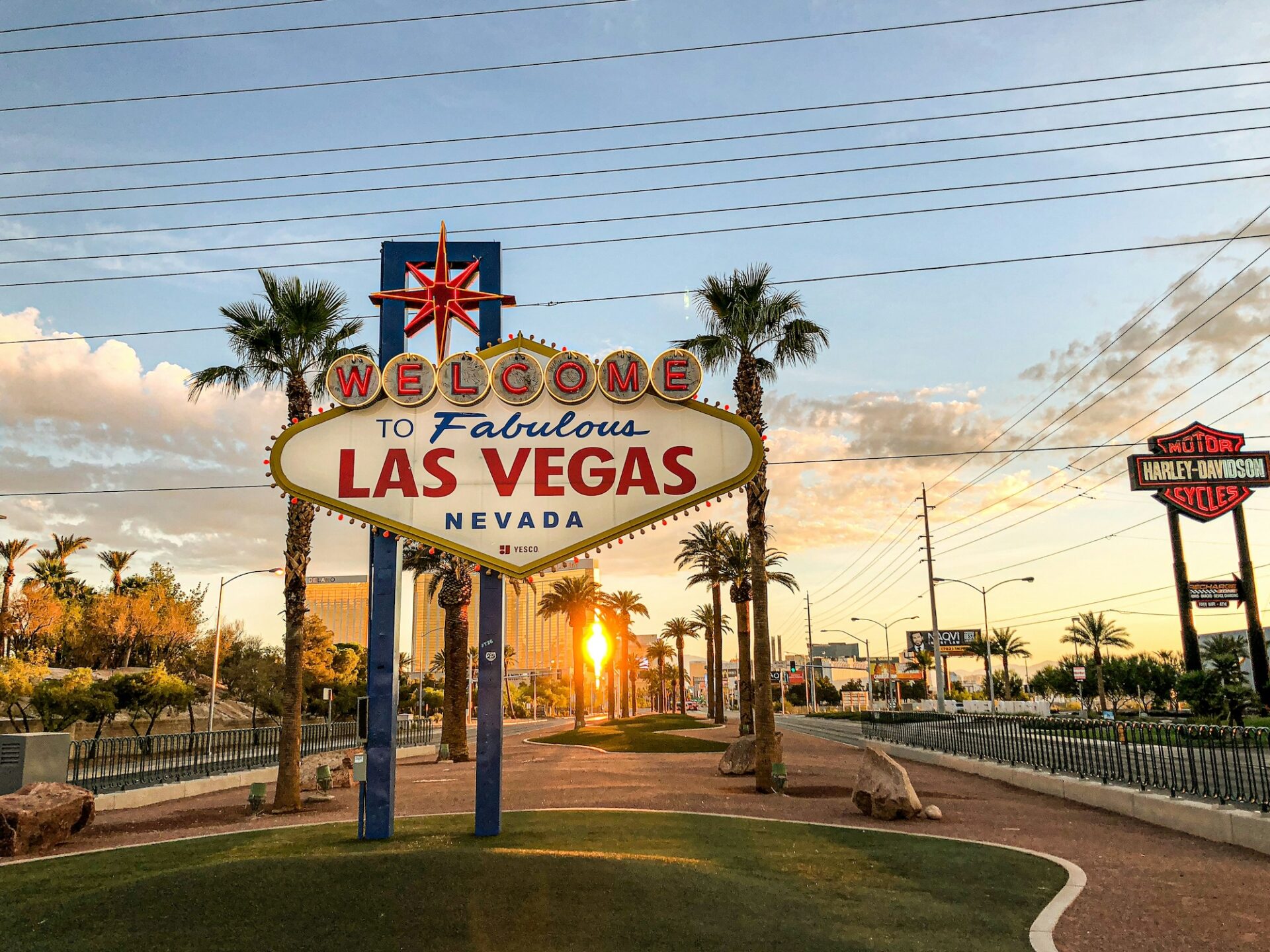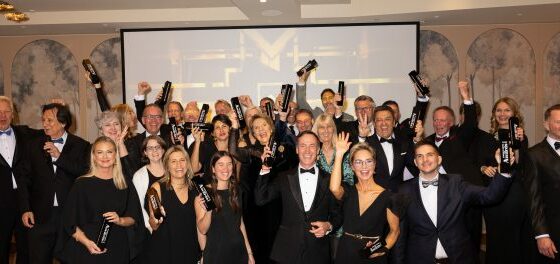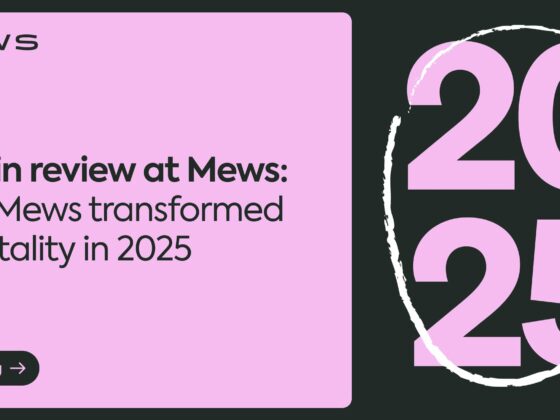This is a guest post, by André Baljeu the Founder of techtalk.travel the opinions shared in this post are those of the author.The definition of ‘value’ in hospitality is being rewritten in real time by today’s travelers. There is no better place to witness this inflection point than Las Vegas. A city legendary for its constant reinvention and comebacks, the recent market data isn’t a sign of decline; it’s the catalyst for its next great act.
The numbers themselves tell a powerful story. In a single summer month:
- The Volume: Year-over-year visitor traffic fell by over 100,000 people.
- The Revenue: This decline directly translated into an estimated $40 million in lost room revenue, with over $1.3 million evaporating from hotel balance sheets every single day.
- The Core Metric: For hotels operating just off the Strip, the pain was even more acute. Their Revenue Per Available Room (RevPAR) plummeted by a staggering 28%.
But while the stage is set in one city, the lessons are global. These figures represent a call to action for the entire industry. The crucial question is not what happened, but what we do next.
Let’s break down the blueprint for reversing these trends and building a more resilient future for the hospitality industry.
Takeaways
Redefine Value Holistically: Create value beyond room rates with bundled packages, unique amenities, and authentic experiences for a broader audience.
Use Technology for Smart Growth: Leverage AI for deep personalization and operational efficiency to enhance the guest experience and improve accessibility.
Empower the Human Element: Strike a Balance Between Technology and High-Touch Service. Train staff to establish personal connections that foster loyalty and differentiate your brand.
Diversify the Appeal: Promote sports, MICE, arts, and nature beyond the Strip to attract new audiences and extend visitor stays.
Embrace Reinvention as an Opportunity: View current market shifts as a catalyst for innovation, using adaptation as a strength for a resilient future.
Understanding the crossroads
The current challenges in Las Vegas are not a result of a single issue. Instead, they are a mix of economic, social, and operational factors. Recognizing these factors is important to prepare for the future. For instance, reports have highlighted guest frustration over high costs. Prices for everyday items and mandatory resort fees have created a perception of poor value. This has alienated some of the city’s traditional, more budget-conscious audience.
In addition, broader economic pressures play a significant role. With inflation affecting discretionary spending, consumers are naturally more cautious. High-cost destinations are often the first to feel this impact. Furthermore, international travel has softened. This reflects global economic shifts and tighter travel budgets. Social media chatter also points to a shifting sentiment. Some visitors describe a less vibrant atmosphere, seeking alternatives that offer distinct experiences.
However, these challenges are not uniform across the city. Convention traffic, for example, has shown robust growth, up by double digits in some months. Similarly, high-end Strip properties continue to maintain impressive occupancy rates above 90%. The pressure is most acute in the off-Strip and mid-range segments. This data offers a valuable insight into areas where change can have the greatest impact. It emphasizes the importance of redefining value to better serve a diverse audience.


The city’s performance metrics reveal a divided market, convention traffic is up 10-11% in some months, and high-end Strip properties maintain occupancy above 90%. Off-Strip budget hotels experience 70% occupancy and RevPAR drops of 17.1%–28.7%, resulting in significant revenue losses.
Redefining value with practical, tangible perks
A successful comeback requires a clear focus on value. While the push toward luxury has been profitable, it seems this has alienated a core segment of travelers. Consequently, growth now depends on bridging this gap. This means creating an appealing ecosystem for all visitors, grounded in practical and transparent benefits, not just aspirational experiences. The key is to address guest pain points directly.
Many travelers feel nickel-and-dimed by mandatory resort fees and inflated ancillary charges. A powerful way to rebuild trust is through transparent, all-in pricing. For instance, hotels could offer packages that clearly bundle the room, resort fee, and even parking into a single, understandable rate. This clarity could provide immediate value and remove a known source of frustration.
Furthermore, value can be delivered through high-impact, low-cost amenities. Today’s travelers appreciate practical perks that make their stay easier and more comfortable. This includes complimentary items like in-room bottled water, reliable high-speed Wi-Fi, or a simple grab-and-go breakfast option. Instead of bundling show tickets, offering a flexible daily resort credit might be more practical. For example, a $25 credit that guests can use on food, drinks, or parking gives them choice and control, which significantly enhances the perception of value.
Technology’s role
Technology is not just a tool for efficiency; it is a powerful enabler of the new value proposition. When used effectively, technology can enhance the guest experience and streamline operations. This ultimately makes hospitality more personal and affordable. The goal should be to use technology for smart growth, not just for aggressive pricing.
AI and data analytics are central to this transformation. For example, AI-powered personalization can help hotels gain a deeper understanding of their guests. By analyzing past behavior and preferences, hotels can proactively offer tailored promotions, room upgrades, or activity suggestions. This moves beyond generic marketing. It makes each guest feel seen and valued, encouraging loyalty. This strategy also helps optimize for total guest value, focusing on the most profitable and resilient customer segments.
The human touch in a high-tech world
Technology offers incredible tools, but hospitality remains a fundamentally human industry. The risk in a high-tech push is that the guest experience becomes cold and impersonal. A “robotic” check-in or an automated concierge can feel efficient but lacks warmth. Therefore, the future depends on balancing technology with a genuine human touch. The most successful operators will be those who use technology to empower their staff, not replace them.
This means investing in training. Hotel staff should be equipped to be more than just service providers; they should be experience curators. An employee empowered with guest data on their tablet can offer personalized recommendations. A concierge who is freed from administrative tasks can spend more time engaging with guests. This creates memorable interactions that technology alone cannot replicate.
Ultimately, the human element is a brand’s most powerful differentiator. In an age of automation, genuine empathy and personal connection are what guests remember. It is what drives positive reviews and encourages repeat visits. By fostering a culture that values its employees and empowers them with the right tools. This focus on human-driven service, supported by technology, is a winning formula for long-term success.
Building a resilient revenue and experience ecosystem
To ensure long-term stability, hotels are increasingly looking beyond their core offerings to build a more resilient and diverse appeal. This strategy involves creating a multilayered destination experience that is less vulnerable to shifts in any single travel segment. By weaving together various demand drivers, hotels can protect their revenue streams and expand their market reach.
A key part of this approach is anchoring the property to major destination events. Whether it’s a large-scale sporting tournament, a major cultural festival, or a city-wide conference, these events create predictable demand peaks. Hotels that actively integrate with and market around these happenings can capitalize on global audiences. Similarly, the MICE (Meetings, Incentives, Conferences, and Exhibitions) segment remains a vital cornerstone for revenue stability. It often provides a consistent baseline of business that is less susceptible to the economic pressures affecting leisure travel. Success in this area increasingly relies on leveraging technology to offer seamless planning and event experiences.
Many innovative hotels are redefining themselves as gateways to local culture. Contemporary travelers, particularly in the premium and experiential markets, are seeking genuine experiences. By highlighting and showcasing nearby attractions, including local culinary offerings, artistic scenes, natural landscapes, and historical landmarks, hotels can redefine their role. They transition from merely providing accommodations to becoming a vital part of the overall destination experience. Serving as significant differentiators, they also promote longer, more lucrative stays, reinforcing guest loyalty.
Closing
The recent shifts observed in major tourism markets are not isolated signals of decline. Instead, they are a call to action for the entire industry. The path forward is not about returning to old formulas but about forging a new one. This approach must be built on a foundation of tangible value, intelligent technology, and an unwavering commitment to the human touch.
By creating more inclusive offerings that cater to both luxury and value-conscious travelers, operators can broaden their appeal. By using technology to enhance personalization and efficiency, any hotel can create a smarter, more responsive hospitality ecosystem. Furthermore, by empowering their workforces, they can deliver the unforgettable experiences that build lasting loyalty. We’re in a moment of transformation, and the operators who embrace this balanced approach are the ones best positioned to lead the way, writing the next exciting chapter for the industry.
Hero Image Credit: Photo by Sung Shin









